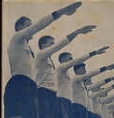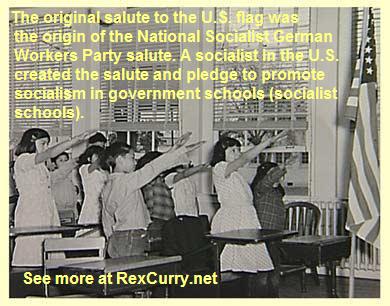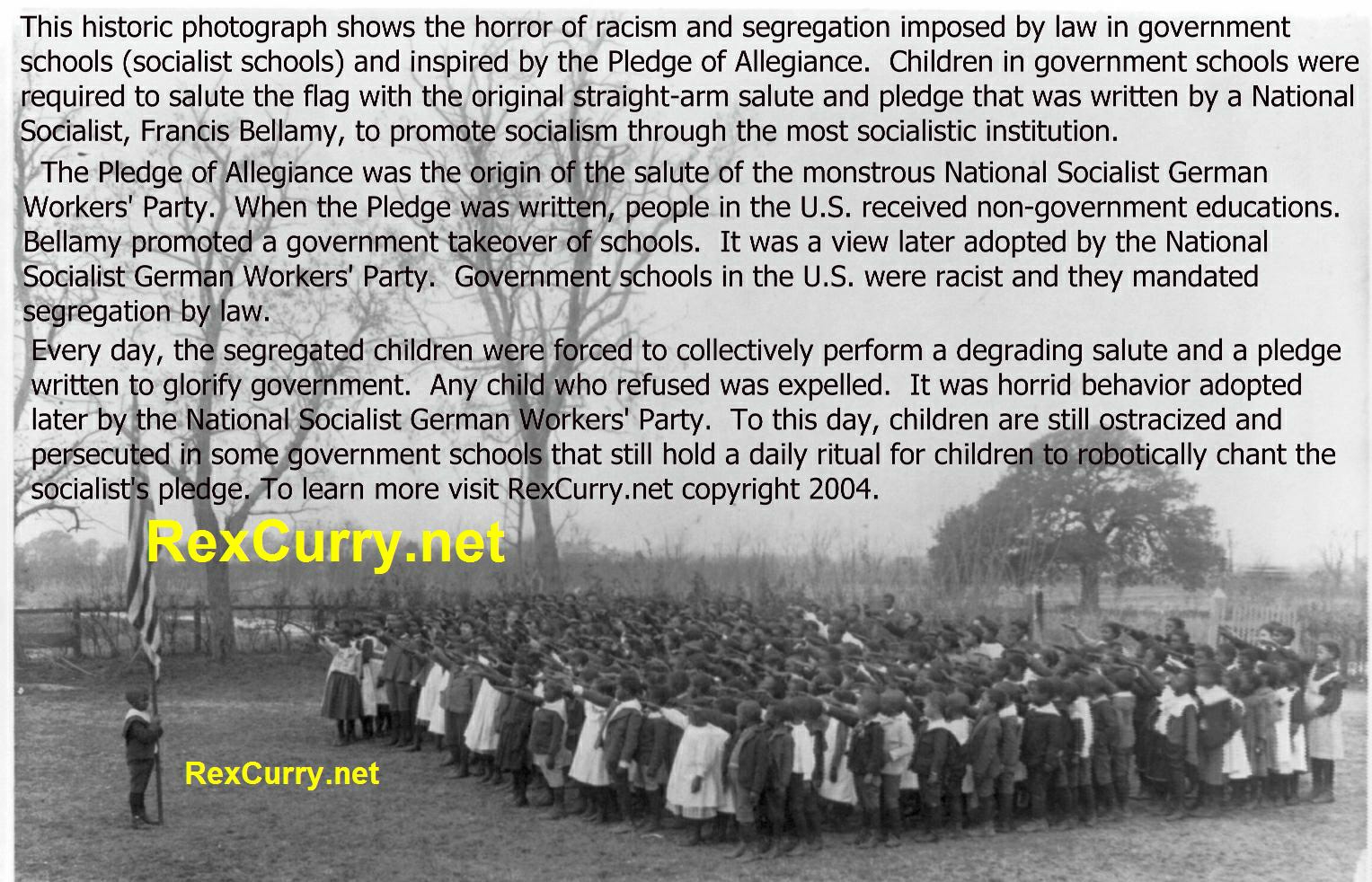One nation indivisible,
one town torn in two
Pledge of Allegiance push shakes small Vt. hamlet
By Brian MacQuarrie, Globe Staff | November 30,
2008
WOODBURY, Vt. - The Woodbury Village Store, the only one in
town, welcomes hunters and other patrons with a hand-written sign
that reads, "Shirt and pants and shoes required," in a snow-dusted
North Country hamlet where many weathered homes are stooped with age.
Inside, the sleepy tableau seems frozen in time. But just
up the hill, at the Woodbury Elementary School, an aggressive effort
to return a daily recital of the Pledge of Allegiance to its four small
classrooms has pitted neighbor against neighbor, unsettled students
and staff, and spawned a vitriolic burst of incendiary name-calling.
No one in this tiny community of 809 people can recall anything
like it. And the rancor has settled so deeply into the psyche here
that residents and school officials say the wounds might take years
to heal.
"I can see the devastation of this. It's real, and it's palpable,"
said Mark Andrews, co-superintendent of schools. At issue is whether
the Pledge of Allegiance should be recited in the classroom every day
by the 53 pupils in the 94-year-old school, just as it is believed to
be in most elementary school classrooms across the country.
The move has been spearheaded by a retired Marine Corps major,
who quickly gathered 310 signatures on a townwide petition after the
Pledge of Allegiance, which used to be recited once a week in a schoolwide
assembly, disappeared entirely in the spring.
"People were pulling the clipboard out of my hand and saying,
'That's disgraceful,' " said Ted Tedesco, a veteran of the Gulf War.
Conflicting definitions and questions of patriotism, values,
and ideology have polarized the town, residents said, and longtime
friendships have become one of the casualties of an issue that had hardly
crossed anyone's mind until the petition surfaced.
"I've seen people in this town who have been friends for years
that now won't speak to each other," said Jeff Kaiser, a nurse who lives
on a 46-acre hilltop spread with his wife and two daughters, one of
whom is a first-grader.
Principal Michaela Martin said the omission of the Pledge
of Allegiance was inadvertent. School officials responded to the petition
with out-of-classroom options to help shield pupils whose families
object to its use of "under God," which was added in 1954. If the Pledge
of Allegiance were held in class, school officials said, those students
who remained seated might be scorned or shunned by their peers.
The Supreme Court, in 1943, ruled that students could refrain
from reciting the Pledge of Allegiance for reasons of religion. Jehovah's
Witnesses, for example, do not salute the flag of any country because
they reserve their worship for only God.
About six Woodbury students exercised their right not to participate,
Andrews said.
In an experiment, Woodbury pupils were invited to walk to
a second-floor gymnasium to recite the Pledge of Allegiance each morning.
But when less than half participated, officials opted for a schoolwide
gathering in the building's entry foyer, only a few steps from the doors
of all four classrooms. There, an older student stands on a small wooden
riser, makes the daily announcements, and leads the school in the Pledge
of Allegiance.
Those pupils who wish to say it can do so. Those who do not
remain silent.
"It's a win-win," Martin said. "The community got their needs
met, and it's a great way to start the day."
For Tedesco, who said he remains convinced that the Pledge
of Allegiance was dropped intentionally, that format is not acceptable.
"The Pledge is legal, the Pledge is traditional, and the Pledge
is convenient when it's said in the classroom," Tedesco said. "To
reduce it to essentially a crowd - a literal mob scene - in a cramped
lobby is to remove the instructional component from the environment."
That displeasure, given a high-profile voice in print and
television reports that circulated nationwide, has caused the community's
wounds to fester, many residents said.
School staff have received threatening phone calls from out
of state. Tedesco and several allies were asked to leave the building
recently after watching the Pledge of Allegiance. And one teacher
turned for home instead of class when she saw a critical e-mail from
a former pupil, who is now in the military, posted to the school door.
Even students, Andrews said, have voiced concerns about safety
and a new atmosphere they have difficulty understanding.
"Let's look at ourselves in the mirror: What are we doing?"
Andrews said. "People need to put down their swords and come together."
Stephanie Fraser, who has a
first-grader at the school, said she was horrified when she saw the
petition beside the cash register at the village store. Later, she stunned
a public meeting when she displayed a salute, which resembles the Nazi
gesture, that accompanied the Pledge of Allegiance for many years after
its introduction in 1892. [the gesture was changed in 1942. Some
people supported the change because of the gesture's similarities to the
National Socialist greeting].
(a photograph with the story carried this caption: Stephanie Faser (center),
watched her husband, Robin Grant, as they discussed the Pledge of Allegiance
issue with Principal Michaela Martin at Woodbury Elementary School. (Caleb
Kenna for the Boston Globe))
"If we give in to a bully,
we have no place to talk about bullying to our children," Fraser said.
"The townsfolk I talk to say they just want this all to stop."
Several residents interviewed said that they readily endorsed
the petition, but that they are satisfied with the foyer solution
despite continuing efforts to push the issue.
"I happily signed because I totally think we should say the
Pledge," said Ellen Demers, the parent of a kindergartner, as she
colored a customer's hair in her beauty salon. "They wanted it back,
we got it back, and I think it's more important that we say it rather
than where it's said."
Earlier that day, Demers attended a monthly community lunch
at the school, where pupils, parents, grandparents, and other residents
gathered in the gymnasium. Her 5-year-old daughter, Abigail, who now
says the Pledge of Allegiance whenever she sees a flag, helped bake an
apple pie for the occasion.
The dispute was not discussed there, but its repercussions
continue to hover over the town.
"We're all a little afraid to talk, because nobody knows where
they stand," Demers said. "I think we're forgetting our kids."
Retta Dunlap, chairwoman of the Woodbury School Board, said
the panel has no plans to revisit the issue, after a unanimous vote
recently to support the foyer option. "It's done, as far as the board
is concerned," she said.
Andrews said the school has much more important business to
conduct than a prolonged debate over the Pledge of Allegiance. "Let's
not put all this energy on saying the Pledge," he said. "Let's focus
on getting kids ready for the 21st century."
Tedesco, for his part, said he has not finished. "This discussion
is not over," he vowed. "There is more to be said."
|




 A SOCIALIST
WROTE THE PLEDGE - for allegiance to socialism in government
schools.
A SOCIALIST
WROTE THE PLEDGE - for allegiance to socialism in government
schools.

